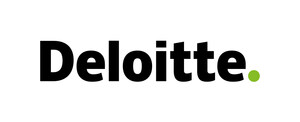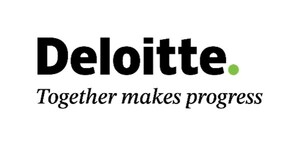
NEW YORK, May 20, 2019 /PRNewswire/ -- The majority (79.2%) of C-suite and other executives recently polled by Deloitte say significant operational risk events impact shareholder value over the long term. Yet, just 39.5% of polled executives leverage advanced analytics to manage operational risk and only 6% use emerging technologies like cognitive computing and machine learning to do so.
In fact, 38.9% of polled executives say their organizations' risk teams offer only backward-looking analyses and reports on operational risk, leveraging no advanced analytics or emerging technologies.
"We've all seen disruptions and risk events that have damaged an organization's peak performance, reputation and — in some instances — their valuations for years," said Nitish Idnani, Deloitte Risk and Financial Advisory principal, Deloitte & Touche LLP. "Operational risk management crises are driving leadership demands for more and closer-to-real time predictable, actionable insights. The good news is recent advancements in predictive risk intelligence tools and technologies make it more possible than ever before to manage operational risk across the enterprise—consistently, not episodically."
Forty percent of executives' organizations are currently making improvements to their operational risk management programs. Another 24.4% plan to improve their programs in the next 12 months according to our poll.
"Use of emerging technologies in operational risk management isn't something all organizations are pursuing at this point. But, we're encouraged to see use of prevalidated, preclassified operational risk management data leveraged by risk teams as a basis for both advanced analytics efforts and presentations to senior leadership," said Monica O'Reilly, Deloitte Risk and Financial Advisory principal and Regulatory and Operations Risk leader, Deloitte & Touche LLP. "Establishing a reliable, sustainable platform with a high-quality data store ready for application of advanced analytics is an important first step to advancing operational risk management programs."
Questions to ask of operational risk management programs include:
- How completely does the operational risk management framework cover the organization? Confirm all material risks the organization faces are captured and updated frequently. Further, procedures and controls to mitigate those risks should be kept current and tested regularly for effectiveness.
- Are emerging risks researched and identified? Some risk management programs are not forward-looking while others are too internally focused or siloed. "Emerging risks that could impact an organization in the next 6, 12 or 18 months should be on everyone's radar and appropriate responses from the business should be at the ready to respond to them," added Idnani.
- Are roles, responsibilities and decision rights defined? Idnani said, "Many organizations are increasingly identifying risk and control champions within their businesses. In some instances, roles and responsibilities between the first and second lines of defense may require realignment to help appropriately protect the business."
- Do we focus on process before IT? Leverage what already exists in your IT infrastructure. "Discern what IT solution may be most sustainable and scalable for your organization's needs only after determining the short- and long-term objectives, expected outcomes, and organizational benefits it needs to address," added O'Reilly. "After sustainable processes are defined and data quality and integrity are assessed as strong, then predictive technologies can be layered into operational risk management programs."
Respondents were split as to the biggest operational risk management program challenges awaiting them in the year ahead among process inefficiencies (19.3%), lack of adequate technologies (18.1%), change management concerns (17.8%), poor data quality (15.8%) and lack of predictive capabilities (10.2%).
About the online poll
On March 28, 2019, a Deloitte Dbriefs webcast titled "Operational risk management: Implementation, data, and analytics," polled more than 955 C-suite and other executives online about operational risk management. Answer rates differed by question and respondents differed by webcast poll.
About Deloitte
Deloitte provides industry-leading audit, consulting, tax and advisory services to many of the world's most admired brands, including nearly 90 percent of the Fortune 500 and more than 5,000 private and middle market companies. Our people work across the industry sectors that drive and shape today's marketplace to make an impact that matters — delivering measurable and lasting results that help reinforce public trust in our capital markets, inspire clients to see challenges as opportunities to transform and thrive, and help lead the way toward a stronger economy and a healthy society. Deloitte is proud to be part of the largest global professional services network serving our clients in the markets that are most important to them.
Contacts |
|
Shelley Pfaendler |
|
Public Relations |
|
Deloitte Services LP |
|
+1 212 492 4484 |
|
Deloitte refers to one or more of Deloitte Touche Tohmatsu Limited, a UK private company limited by guarantee ("DTTL"), its network of member firms, and their related entities. DTTL and each of its member firms are legally separate and independent entities. DTTL (also referred to as "Deloitte Global") does not provide services to clients. In the United States, Deloitte refers to one or more of the US member firms of DTTL, their related entities that operate using the "Deloitte" name in the United States and their respective affiliates. Certain services may not be available to attest clients under the rules and regulations of public accounting. Please see www.deloitte.com/about to learn more about our global network of member firms.
SOURCE Deloitte







Share this article